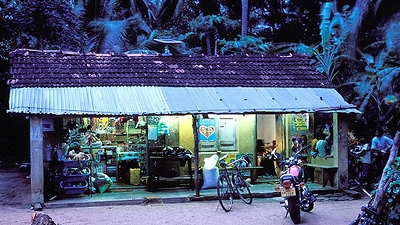What will it take to end poverty? Part of the answer lies in access to sustainable energy and the benefits it provides, such as lighting that keeps shops open longer and allows children to study into the evening, electricity that powers technology from cell phones to weather radios, and safer household fuels for cooking and comfort.
The UN launched the Sustainable Energy for All initiative last fall to bring the world closer to that goal by increasing access to electricity and clean household fuels and expanding the use of renewable energy and energy efficiency.
On Monday, the World Bank announced that it would formally join the initiative, and UN Secretary-General Ban Ki-moon introduced World Bank President Jim Kim as his co-chair of the multi-stakeholder advisory board that provides strategic guidance to the Sustainable Energy for All initiative.
“Ending poverty and ensuring sustainability are the defining challenges of our time,” Dr. Kim said. “Energy is central to both of them.”
Dr. Kim praised the secretary-general for bold vision and leadership in taking on the challenge. Globally, an estimated 1.3 billion people do not have access to electricity, and 2.7 billion depend on wood, charcoal, dung, and coal to cook meals and heat their homes, fuels that can contribute to illnesses and premature deaths.
“Providing sustainable energy for all could be the biggest opportunity of the 21st century,” Ban said. “Sustainable energy is the golden thread that connects economic growth, social equity, and a climate and environment that enables the world to thrive. This initiative is bringing together governments, the private sector, and civil society in a partnership that’s delivering real results.”
The Sustainable Energy for All initiative calls on governments, businesses, and civil society to meet three goals by 2030: achieve universal access to energy, including electricity and modern cooking and heating fuels; double the renewable share of power produced and consumed from 15% to 30%; and double the energy efficiency improvement rate.
Dr. Kim committed the World Bank Group to mobilize its knowledge and policy expertise to increase the impact of its financing of energy projects, which has been just over $8 billion in each of the past two years.



